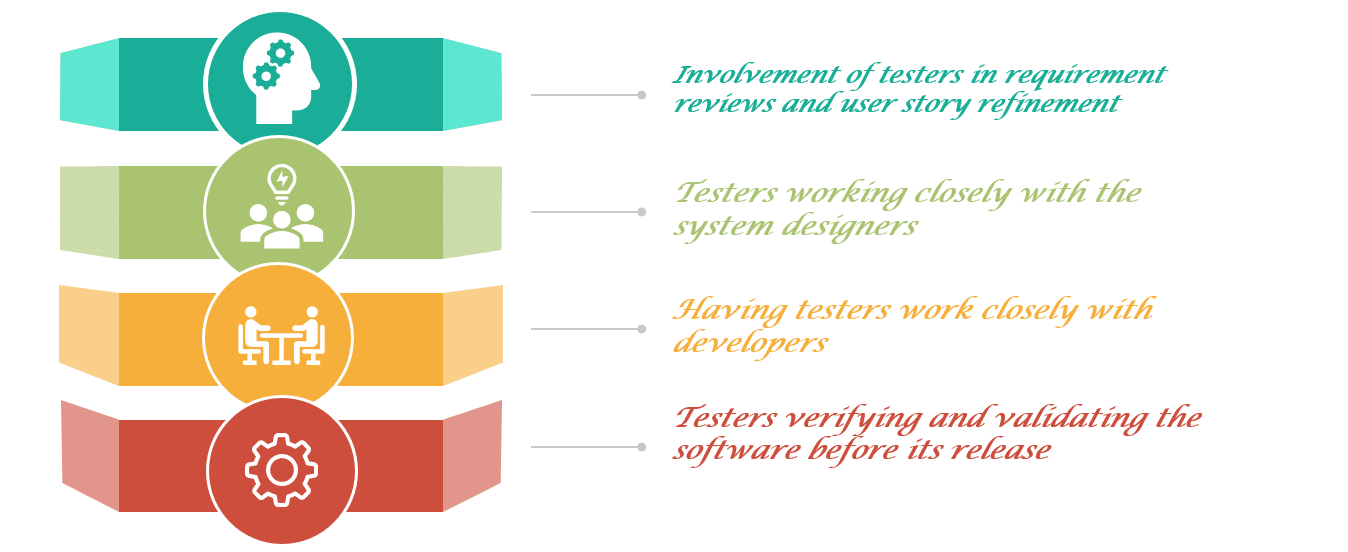Let's start by considering Why is Testing Necessary. Testing is essential because we all make mistakes. Some of those mistakes are not important, but some are expensive or could be life-threatening. We have to test everything that we produce because things can go wrong; humans can make mistakes at any time.
- Why is Testing Necessary?
- Testing's Contribution to Success
- Software Testing: A Key Aspect of Quality
Why is Testing Necessary?
Human errors can cause a defect or failure at any stage of the software development life cycle. The results are classified as trivial or catastrophic, depending on the consequences of the error.
The requirement of rigorous testing and their associated documentation during the software development life cycle arises because of the below reasons:
- To identify defects
- To reduce flaws in the component or system
- Increase the overall quality of the system
There can also be a requirement to perform software testing to comply with legal requirements or industry-specific standards. These standards and rules can specify what kind of techniques should we use for product development. For example, the motor, avionics, medical, and pharmaceutical industries, etc., all have standards covering the testing of the product.
The points below shows the significance of testing for a reliable and easy to use software product:
- The testing is important since it discovers defects/bugs before the delivery to the client, which guarantees the quality of the software.
- It makes the software more reliable and easy to use.
- Thoroughly tested software ensures reliable and high-performance software operation.
For example, assume you are using a Net Banking application to transfer the amount to your friend's account. So, you initiate the transaction, get a successful transaction message, and the amount also deducts from your account. However, your friend confirms that his/her account has not received any credits yet. Likewise, your account is also not reflecting the reversed transaction. This will surely make you upset and leave you as an unsatisfied customer.
Now, the question arises, why did it happen? It is because of the improper testing of the net banking application before release. Thorough testing of the website for all possible user operations would lead to early identification of this problem. Therefore, one can fix it before releasing it to the public for a smoother experience.
Testing's contribution to the Success
In the above example, we can observe that due to the presence of defects, the system failed to perform the required operation and didn't meet the client's requirements. Appropriate testing techniques applied to each test levels, along with a proper level of test expertise, ensures an absolute reduction in the frequency of such software failures.

Let's have a look at how the testing can contribute to the success of the overall project:
- Involvement of testers in requirement reviews and user story refinement- Involving testers during the requirement phase ensures identification of some of the requirement defects even before their implementation. It significantly reduces the fixing cost. Also, the tester gains significant project insight at this stage. Which, in turn, helps him in the execution phase of the project.
- Testers working closely with the system designers- It will increase their understanding of each part of the design. Additionally, it will help in reducing the risk of fundamental design flaws and allows the identification of errors at an early stage. Moreover, it also improves the quality of integration scenarios and results in a better quality of defects.
- Having testers work closely with developers- When testers work closely with developers, it enhances their understanding of each part of the code. It further enables testers to do more efficient testing against customer requirements. Thereby reducing the risk of defect slippage. Testers also become aware of areas that are considered risky by the developer so they can adjust their priorities accordingly. Additionally, developers also get the tester's insight. This helps in reproducing the bugs there and then, without going through a lengthy defect management process.
- Testers verifying and validating the software before its release- This helps in detecting errors that otherwise may have gone unnoticed, and support the process of eliminating the defects that caused the failures. The execution of tests at various levels increases the likelihood that the software will have fewer errors and also meet the customer's needs.
Software Testing: A Key Aspect of Quality
The delivery of an optimal quality software product that has unique and innovative features has always been the priority of the software industry worldwide. However, without evaluating software components under various expected and unexpected conditions, the team cannot guarantee these aspects. Therefore, testing is performed to test every software component large and small.
To understand Software testing importance, let's look into the below points:-
- The software test is essential. So, do not start over from scratch again: Sometimes, we test a fully developed software product against the user requirement and find that some basic functionality was missing. It may happen because of a mistake in the requirement gathering or the coding phase. Then to fix such types of errors, we may have to start the development again from scratch. Fixing such kinds of mistakes becomes very tedious, time-consuming, and expensive. Therefore, it is always desirable to test the software in its development phase.
- Evaluating the ease of use of the software: Ease of use is a simple concept; it specifies how easily the intended users can use the final product. The software testing ensures the construction of the software product in a way that meets the user's expectations regarding compliance with the requirements in a comfortable, satisfactory, and simplistic manner.
- Verification of all aspects of the software- You can verify all the aspects of the software in software testing, such as checking the basic functionalities as well as testing a system for unexpected conditions. Unexpected conditions can be from an incorrect data type or due to a piracy attack. Therefore, testing makes sure that the system can handle these situations very well. Thus, if we find an error in advance, we have the option to correct them. It can prevent complaints once the software or application has reached customers.
- Software tests help accelerate development- Software tests help developers find errors and scenarios to reproduce the error, which in turn helps them to fix it quickly. Besides, software testers can work in parallel with the development team, thus understanding the design, risk areas, etc. in detail. This knowledge exchange between testers and developers accelerates the entire development process.
Conclusion:
To conclude, the importance of software testing is imperative. Software testing is a crucial component of software product development because it improves consistency and performance. The main benefit of testing is the identification and subsequent removal of the errors. However, testing also helps developers and testers to compare actual and expected results in order to improve quality. If the software production happens without testing it, it could be useless or sometimes dangerous for customers. So, a tester should wear a unique hat that protects the reliability of the software and makes it safe to use in real-life scenarios.













